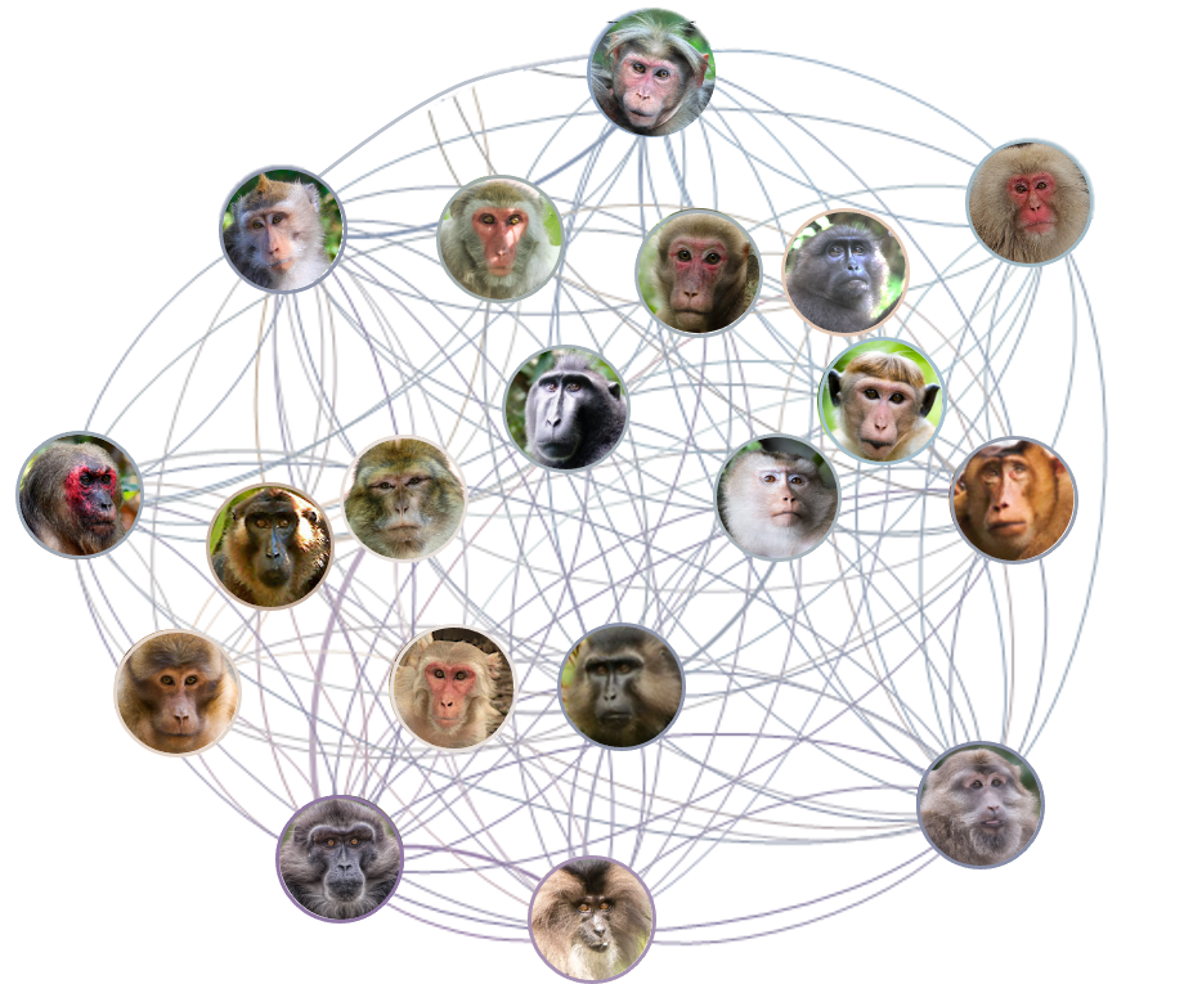About

What Is MacaqueNet?
MacaqueNet is a global grass-roots collaboration, bringing macaque experts from a wide range of research fields together. The aim of MacaqueNet is to strengthen and create new connections between macaque researchers, to promote truly interdisciplinary and cross-species big-team science. Together, we can join forces to establish a culture where knowledge and resources are shared to let comparative macaque research reach its full potential.
Thanks to MacaqueNet, we have been able to create an unparalleled multi-species database. The database currently contains social behavioural data from 14 of the 24 macaque species, with data on affiliation and agonism for over 2000 individual female and 1000 male macaques. This data has been collected over the last few decades by over 90 researchers at 56 different field sites, zoos or research centres.

Why Macaques?
Macaques have been studied intensively both in the wild and in the lab in the last few decades, which has given us extensive knowledge of their ecology and social behaviour and and has strongly informed research on the biological underpinnings of those behaviours. Macaque research has also pioneered cross-species comparative research in behavioural ecology. Macaques are one of the largest primate taxa, living in a variety of habitats and showing morphological and behavioural adaptations to their different socio-ecological environments. One of the key strengths of the macaque genus is that while they are very similar in their basic social organisation, they show substantial variation in their social structure, with stark differences in the level of hierarchy steepness and kin bias across species. Together, this allows us to ask questions about the causes and consequences of forming social relationships and living in despotic or more egalitarian societies, keeping other confounding factors constant. As such, studies on macaques have been crucial to our current understanding of the evolution social relationships, from both proximate and ultimate perspectives.
With MacaqueNet, we want to take macaque comparative research even further. Currently, we are looking into questions like ‘Which socio-ecological forces shape variation in social structure across macaque species?’ and ‘Do more tolerant macaques have more diverse social relationships and therefore higher social complexity?’ These are just a few examples of questions we can answer through big-team macaque research.
As MacaqueNet grows and the database expands to include behavioural, life history, ecological, genetic and other data on different macaque species, we can build a truly interdisciplinary comparative system in which to further explore the function and underlying mechanisms of sociality, social bonding and social complexity. We’ve already come so far, now let’s see what we can achieve within the next 10 years, together.
